In the rapidly evolving beverage industry, achieving production efficiency while maintaining quality is more crucial than ever. According to a report by Allied Market Research, the global bottling equipment market is projected to reach $10.4 billion by 2025, highlighting the increasing reliance on traditional bottling machines.

However, as manufacturers seek to optimize their operations, there is a growing trend towards exploring diverse alternatives to these conventional bottling machines. These alternatives not only promise to streamline production processes but also offer flexible solutions tailored to varying production scales. From smart technology integration to innovative packaging methods, this blog delves into the exciting options available that can enhance efficiency, reduce costs, and ultimately transform the way beverages are bottled and distributed. The future of beverage production is not solely confined to the bottling machine but instead celebrates a myriad of inventive approaches aimed at improving overall operational effectiveness.
As the beverage industry evolves, innovative technologies are rising to the forefront, challenging traditional bottling machines and paving the way for more efficient and sustainable production methods. Beverage companies are increasingly exploring alternatives that align with consumer preferences for environmentally responsible packaging. Solutions like aseptic packaging and advanced filling technology not only meet market demands but also enhance production efficiency and sustainability.
Recent trends highlight a significant shift towards sustainable practices within the beverage packaging sector. The U.S. market for beverage packaging equipment is projected to grow substantially, reflecting the industry's commitment to adapting to new consumer habits. Manufacturers are investing in cutting-edge technologies that allow for greater flexibility in production, enabling them to respond swiftly to the growing variety of SKUs. This evolution underscores the importance of adopting innovative packaging solutions that not only satisfy current demands but also secure a competitive edge in a rapidly changing marketplace.
In the ever-evolving landscape of packaging solutions, businesses are increasingly exploring alternatives to traditional bottling machines. With a growing emphasis on cost-effectiveness, companies are seeking innovative methods to enhance production efficiency.
 One noteworthy development in this realm is a portable micro-detection tool developed by researchers at the University of British Columbia. This tool utilizes fluorescent labels to detect plastic particles ranging from 50 nanometers to 10 microns, offering a significant advantage in quality control and sustainability measures.
One noteworthy development in this realm is a portable micro-detection tool developed by researchers at the University of British Columbia. This tool utilizes fluorescent labels to detect plastic particles ranging from 50 nanometers to 10 microns, offering a significant advantage in quality control and sustainability measures.
Beyond just lowering operational costs, these alternative packaging solutions can revolutionize the industry by minimizing ecological impact. As environmental considerations become paramount, businesses are urged to pivot towards more sustainable materials and processes. The introduction of such advanced detection technologies not only aids in meeting regulatory standards but also empowers companies to adopt greener practices that resonate with an environmentally conscious consumer base. As we approach 2024, the industry is poised for transformation, encouraging a shift that harmonizes efficiency with environmental responsibility.
In the quest for maximizing efficiency in production lines, automated systems play a pivotal role in redefining traditional bottling processes. As industries strive for faster output rates and reduced downtime, the integration of cutting-edge technology into production workflows has become paramount. Automated systems not only streamline operations but also minimize human error, allowing for a more consistent and reliable production rate.
From advanced filling technologies to intelligent quality control mechanisms, these automated alternatives to traditional bottling machines are revolutionizing the way products are prepared for market. Implementing automated conveyor systems, for instance, can enhance the movement of goods through various stages of production, ensuring a seamless transition from filling to packaging. With real-time monitoring and data analytics, manufacturers can make informed adjustments on the fly, enhancing overall productivity while reducing waste. As the industry evolves, embracing such automated solutions is essential for staying competitive in an increasingly demanding market.
| Alternative System | Efficiency (%) | Cost ($) | Maintenance Frequency (Months) | Production Speed (Units/hour) |
|---|---|---|---|---|
| Automated Filling System | 95 | 25000 | 6 | 1200 |
| Shrink Wrapping System | 90 | 15000 | 12 | 800 |
| Robotic Palletizing System | 97 | 30000 | 9 | 1500 |
| Labeling Machine | 92 | 20000 | 10 | 1000 |
| Conveyor Systems | 85 | 12000 | 14 | 600 |
In today's rapidly evolving manufacturing landscape, businesses are increasingly recognizing the importance of sustainable practices, especially when it comes to liquid packaging. Eco-friendly options are not just a trend; they represent a crucial shift towards minimizing environmental impact while maintaining efficiency in production. Innovative alternatives to traditional bottling machines are emerging, aimed at reducing waste and improving sustainability. Technologies such as biodegradable packaging, refillable systems, and advanced dispensing methods are leading the charge in creating a more responsible approach to liquid packaging.
Adopting these eco-friendly alternatives not only supports environmental conservation but also appeals to a growing base of conscientious consumers. Refillable containers, for instance, allow customers to reuse packaging, thereby reducing plastic waste significantly. Meanwhile, biodegradable and compostable materials are becoming more accessible and practical, making them viable options for businesses committed to lowering their carbon footprint. Embracing these sustainable practices can also enhance a brand’s reputation, as consumers are increasingly inclined to support companies that prioritize environmental stewardship, ultimately driving long-term success in a competitive market.
 With the beverage industry rapidly evolving, packaging technology is at the forefront of innovation. As sustainability becomes a key focus, many companies are exploring options beyond traditional bottling machines. The shift towards paper packaging, for example, is gaining traction due to its environmental benefits and versatility. The paper packaging market is projected to grow significantly, driven by rising consumer demand for eco-friendly solutions. This trend suggests that the future of beverage packaging may embrace more biodegradable materials, reducing reliance on plastics.
With the beverage industry rapidly evolving, packaging technology is at the forefront of innovation. As sustainability becomes a key focus, many companies are exploring options beyond traditional bottling machines. The shift towards paper packaging, for example, is gaining traction due to its environmental benefits and versatility. The paper packaging market is projected to grow significantly, driven by rising consumer demand for eco-friendly solutions. This trend suggests that the future of beverage packaging may embrace more biodegradable materials, reducing reliance on plastics.
In this context, the disposable cup and lid market is also witnessing remarkable growth. It is expected to reach $466.655 million by 2025 and $608.641 million by 2033, with a compounded annual growth rate of 5.17%. This increase indicates a strong consumer preference for convenience and hygiene, further motivating beverage manufacturers to adapt their packaging strategies.
Tips:
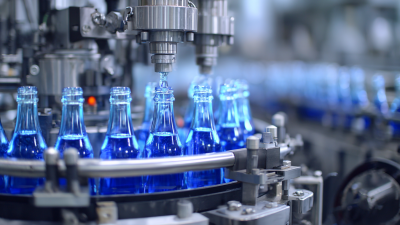
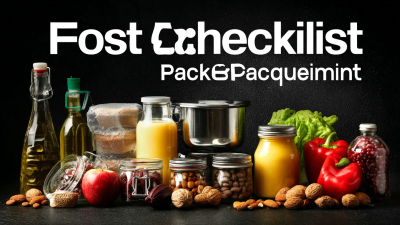
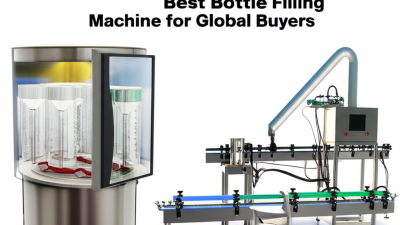
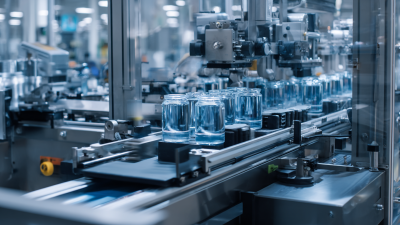

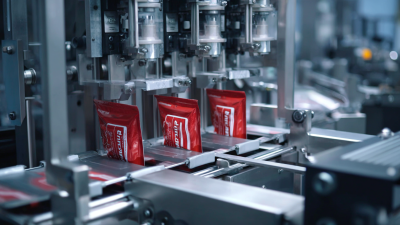
Accutek Packaging Equipment Companies, Inc. stands as one of the premier privately owned packaging machinery manufacturers in the United States.
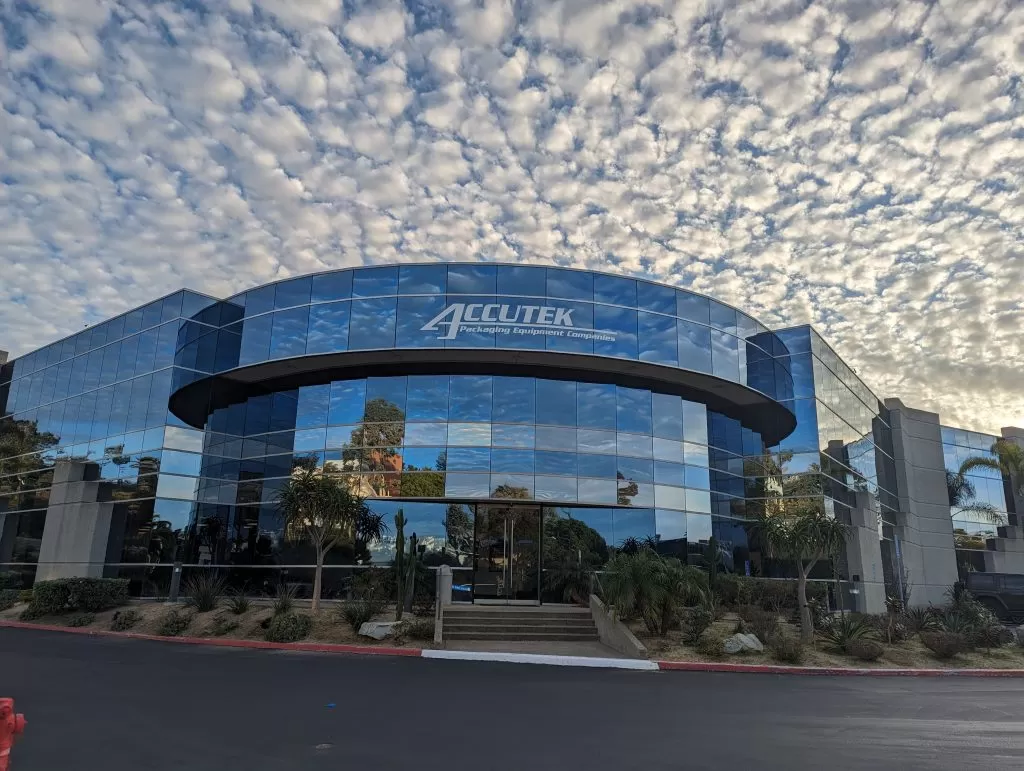
Sign up for all the news about our latest arrivals